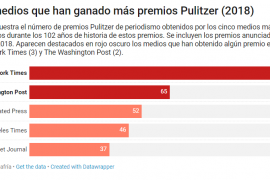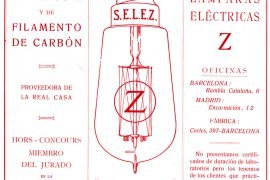“Women must be at executive and also at intermediate positions, both in conventional and technological fields.” The Catalan Minister for Business and Knowledge, Àngels Chacón, has an issue that is specially highlighted in her agenda: women must achieve the same presence as men in the field of business, and specially in science and technology. At a time when nobody can doubt their ability to play all the keys, it is time that they got their hands on the keyboard.
 Her objective is aligned with that of the General Assembly of the United Nations in the resolution “Transforming our World: The 2030 Agenda for Sustainable Development.” Among the 17 goals and 169 targets to be achieved in the 2030 horizon presented in this document, one of the highlights is the challenge of ensuring full and effective participation by women. This means achieving equal opportunities for leadership in all decision-making areas of political, economic and public life.
Her objective is aligned with that of the General Assembly of the United Nations in the resolution “Transforming our World: The 2030 Agenda for Sustainable Development.” Among the 17 goals and 169 targets to be achieved in the 2030 horizon presented in this document, one of the highlights is the challenge of ensuring full and effective participation by women. This means achieving equal opportunities for leadership in all decision-making areas of political, economic and public life.
The Department of Business and Knowledge, led by Minister Àngels Chacón, the first woman in the position, signs on with this objective and is already working to achieve it. In this sense, the presence of women in a vector like science and technology is relevant to reverse a gap that is too acute, as is likewise the case in manufacturing.
WOMEN UNDER-REPRESENTED
The figures do not contradict the insight: there is still a long way to go, especially in some of the areas with the greatest weight in the Catalan economy, such as manufacturing. According to the report on “Women in the industrial sector in Catalonia,” promoted within the framework of the National Agreement for Industry, and authored by Carme Poveda of the Women’s Business and Economy Observatory of the Barcelona Chamber of Commerce, there is strong masculinization of the manufacturing sector in Catalonia. Only 28% of jobs in this area are occupied by women and the gender pay gap is higher than that of the economy as a whole, 17.3% as opposed to 15.3%.
The Minister of Business and Knowledge considers that “over-qualification and the problems they have in climbing and reaching positions of responsibility, because of difficulties in reconciling, but also due to the glass ceiling, prevents internal promotion and has significant economic effects.”
Another significant conclusion by the study is that the average level of training of women in manufacturing is higher than that of men, but that does not translate into a greater female presence in decision-making positions, which remains at 22.4 %.
“One basic problem is the lack of vocation in industry, especially of technical profiles, both among men and women, because when we talk of this sector we still think of smokestacks when it is the branch that innovates most,” explains Chacón. But in the case of women the situation is still further complicated by the masculinization of the working environment and the lack of female role models. This circumstance also obliges women to strive more to be recognized, to be over-qualified, to have a greater dose of self-confidence and greater support from the family. The presence of women in industry is often explained by family or acquaintances. One example: 75% of women engineers are daughters of engineers. Most women who work or want to work in industry is because they have family members who work or have worked there.
The study also highlights that one of the main reasons why there is a lack of female presence in industry is the lack of professional guidance from childhood, as is shown by the fact that from the age of six girls already reject technological options because they believe they are more difficult to study and “it’s a man thing.”
MAKING FEMALE ROLE MODELS IN SCIENCE AND TECHNOLOGY VISIBLE
Faced with this situation and with the challenging goal of achieving 50-50 by 2030, the Department of Business and Knowledge has already begun to work on promoting an action plan. This is to be transversal in order to start from primary school to develop female competences, make women role models in areas such as science and technology visible, making technology subjects compulsory in schools, explaining environmental changes in industry and also the job opportunities on offer. “Visits are already being made to businesses, but sometimes just a simple excursion is not enough; it is necessary to prepare teaching materials that work on all these concepts,” emphasizes Chacón.
One of the challenges that society faces is retaining and boosting female talent, and for this reason the strategic lines to follow focus on achieving truly flexible working hours and adapting to the cycle of life; promoting conciliation between women and men; staking on reaching goals rather than clocking working hours; and fostering internal promotion of female talent.In order to achieve effective equality, women must be favoured for access to higher levels of responsibility. In this sense, the Minister of Business and Knowledge explains that “mentoring programmes, women’s groups, and boosting their participation in external training” must be promoted.




















